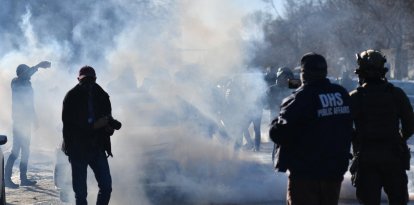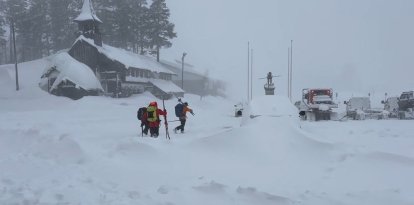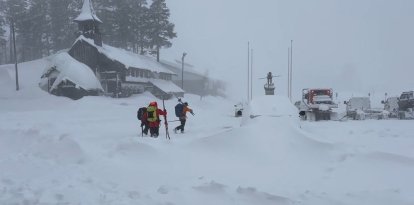Emergency declared in Minnesota and 65 million projected to be affected by new winter storm
The massive winter storm, which will last until Friday, caused the cancellation of more than 1,000 flights nationwide.

(Zac Durant / )
Minnesota Governor Tim Walz declared a "peacetime emergency" because of the massive winter storm that will sweep across the nation through Friday. It is expected that about 20 inches of snow could accumulate in the state as a result of the storm’s two predicted waves of harsh weather:
Executive Order 22-23 Minnesota Goverment by VozMedia on Scribd
For this reason, the Democratic governor decided to declare a state of emergency that allows the National Guard, police and Department of Transportation to assist drivers whose vehicles are immobilized so that they can get to safety as well as respond to other types of emergencies during the storm. The measure, according to Walz’s statements in a press release, is being taken as a precaution:
He further assured that the "goal is to make sure that we're ready if there's a power outage, being able to keep the highways open, and move emergency vehicles as quickly as we can."
This "peacetime emergency" will remain in effect, Walz said, until Feb. 28 or until weather conditions are more favorable.
More than 65 million people affected by the storm
Minnesota will not be the only state to suffer the ravages of the storm. Another 29 states are on alert for the weather phenomenon. In total, it is estimated that more than 65 million people will be affected by this massive winter storm.
Several schools in North Dakota, South Dakota and Wisconsin joined Minnesota and suspended classes until further notice, the AP reported. Flights were also cancelled. According to
FlightAware, more than 1,000 flights scheduled in the nation Wednesday were suspended. The airport reporting the most cancellations was Minneapolis-Saint Paul International, which canceled 395 arriving and departing flights. Denver had nearly 200 cancellations.
The National Weather Service also warned of complications that could be experienced in various parts of the country throughout Wednesday, Feb. 22. The agency said parts of Oklahoma, Missouri, western Illinois and western Arkansas could see severe thunderstorms throughout the day:

























